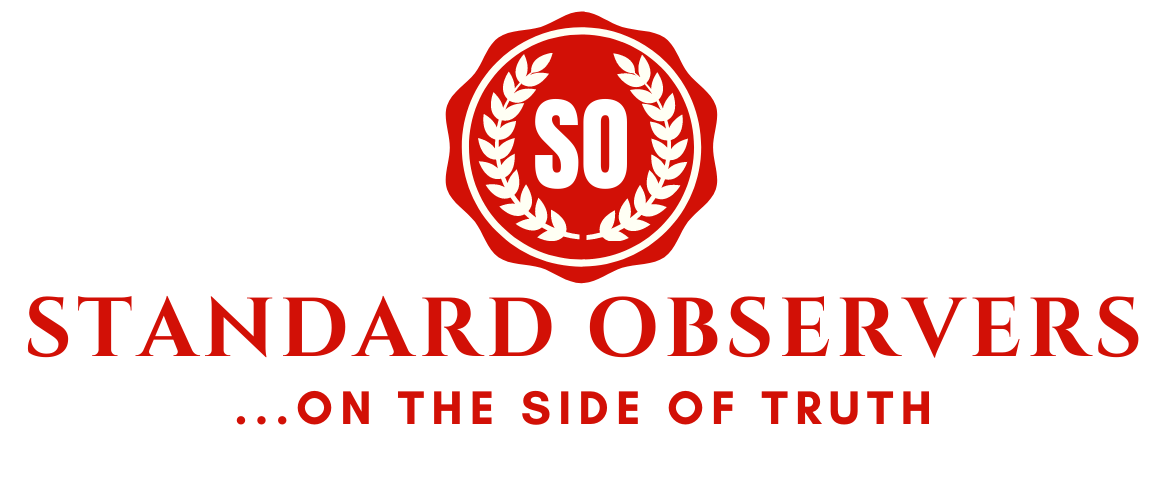By John Mayaki
It is not out of place for political actors to play up peculiar advantages to get an edge during contests. But approach and method, especially in relation to opposition, is what distinguishes clever politicians from the vacuous. It serves as a point of contrast between the truly knowledgeable and charlatans.
Former CBN boss Charles Soludo disappointed many by his occupation of the latter category (of the charlatans) with the unfortunate – and frankly absurd – argument he advanced days ago. At a party event, the rookie politician who clearly got over-promoted based on a much-touted history of corporate success asserted that governance should be reserved only for those with university degrees.
The sophistication of Anambra state, according to Soludo, makes it such that only university graduates should even try to lead it. Evidently, he attempted to focus attention on an area he considers himself over and above the fray. He after all has a long list of titles obtained from different studies across a number of institutions.
But his tactless approach and the impoverished argument it spawned is proof that Mr. Soludo’s understanding of leadership, particularly in a democracy, is embarrassingly poor. He also reveals himself as one who, in spite of the many years spent in classrooms and within the walls of institutions with healthy libraries, has no sense of history.
Worse than this is the fact that such narrow-mindedness could be a symptom of a lack of curiosity beyond the limited scope of academic/professional commitments – a situation which would make him a one-trick pony. In reality, this makes him the worst candidate for public office. Public office requires the ingenuity of a generalist; it demands a mind alive with curiosity and sufficient knowledge of the workings of several sectors. An irony becomes apparent here and is worth noting. The man who has appointed himself the janitor of public office, scrutinizing the credentials of others to see if they can handle the expected ‘sophistication’, is himself too narrow-minded to fully conceive the requirements or pass the test.
Perhaps Mr. Soludo has heard of the name Abraham Lincoln, even if he isn’t familiar with the man. Only a person with Mr. Soludo’s presumed poor historical knowledge would contend his position in history as one of the greatest leaders and statesmen that ever lived, never mind that he served as the 16th President of the United States of America until his assassination.
Elected in 1861, he guided the country through one of its most pivotal points in history with noticeable ripples even today: the American civil war. The complexity of the time and enormous burden it placed on Abraham Lincoln requires no retelling. It was beyond “sophisticated” and whatever the state of affairs in Anambra state today, it definitely is nowhere near the chaos and confusion of a country split in two and at literal war with itself.
Yet, as records show, Abraham Lincoln, a largely self-educated man who lacked Mr. Soludo’s minimum requirement of a university degree, managed the situation competently and admirably. It was his courage, intelligence, and strong moral fiber that allowed the good side to prevail (as vindicated by posterity) and heralded a re-integration and reconstruction process that kept the country afterward.
Mr. Soludo’s assertion suggests Abraham Lincoln would have failed his fitness test for public office. Another leader that would fail is Winston Churchill. The British Second World War hero who halted the march of the Nazis and authored some of the finest ideas on governance did not go to college, too.
Or perhaps Mr. Soludo believes he would make a better leader than both just by the virtue of his vaunted degree, even if questions remain about how truly effective his tenure as CBN Governor was. Do note that his position had far fewer responsibilities than either Lincoln or Churchill had to deal with.
The problem with Mr. Soludo and his ilk who pay lip service to democracy but have secret longings for secured aristocracy is a blinding conceit. The arrogant belief that leadership is theirs to claim as a matter of birthright. Their condescension for the mass they wish to rule over and dictate to always slips through, no matter the pretence or veil. Thousands of Anambrarians without a university degree won’t be happy to learn that this classist man who wants to be their Governor thinks they shouldn’t be considered for high office, no matter their success in other endeavors.
More worrying is the fact that the logical extension of Mr. Soludo’s view is that, like would-be leaders, only citizens certified to grasp the “sophistication” of voting should be allowed to participate in the electoral process. Even though evidence of the success of such system does not exist anywhere.
Integrity, self-awareness, empathy, curiosity and learning agility, systems development and management, courage and the other essential qualities of leadership do not come with a university degree. Had Mr. Soludo himself possessed a good dose of any, notably self-awareness and learning agility, he probably would not have uttered the unfortunate statement.
It may be to his benefit at this point to refrain from passing judgments on the other candidates and focus on respectfully advertising his strengths, if any. Because all indications show that matters of democratic leadership and building a campaign that is effective yet decorous are simply too sophisticated for him to understand.
Mayaki is a Journalist, Historian, Diplomat, Archivist, Documentalist, Communication, Culture and Media expert (Coventry University, England). He’s also an Oxford and Cambridge University-trained entrepreneurship, leadership and sustainability expert. A Professional Consultant on Communication, Management and Strategy (Chattered Management Institute, England).







